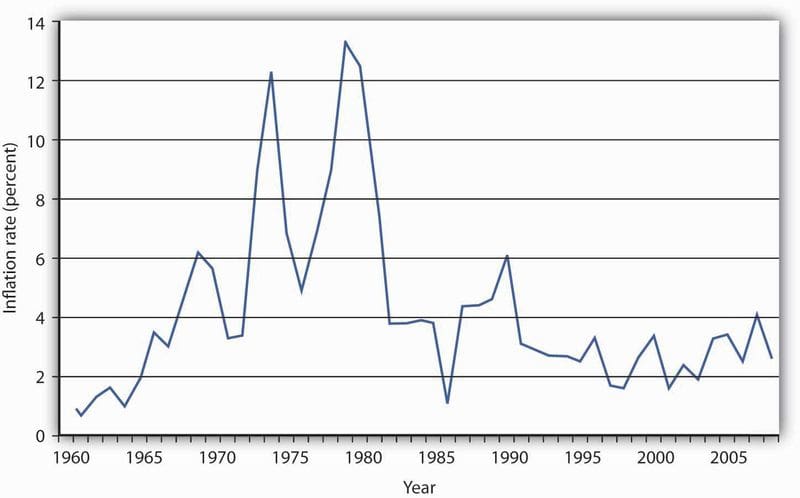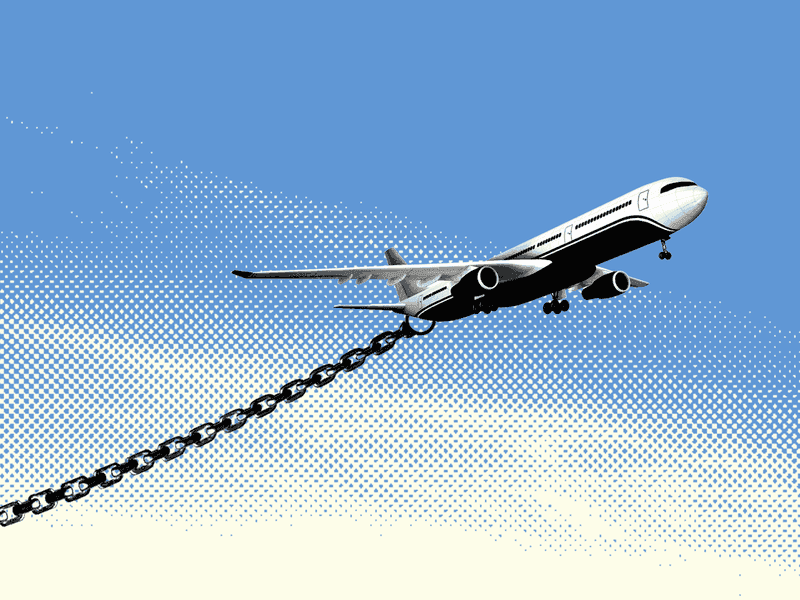The generational divide often sparks debates, but it’s undeniable that each generation faces unique challenges. Grew up in a world markedly different from today’s digital age.
This post explores harsh realities that Boomers lived through, which Millennials, and subsequent generations, may find hard to imagine. From societal norms to technological limitations, Boomers navigated a landscape that shaped their resilience and perspectives.
1. Economic Instability and Inflation

The economic landscape for Boomers was marked by significant instability and inflation, particularly during the 1970s. Prices skyrocketed, and interest rates were volatile, creating an unpredictable environment for families trying to make ends meet. For many Boomers, buying a home or even basic groceries required careful financial planning and sacrifice.
The inflation rates reached double digits, meaning that each dollar earned had relatively lesser purchasing power. This led to financial stress as wages couldn’t keep pace with the rising costs of living. Many Boomers remember diligently clipping coupons and budgeting meticulously just to stretch their dollars.
Such financial challenges meant Boomers had to be resourceful, often requiring both parents to work. The era demanded resilience and adaptability, traits that many Boomers still rely on today. In contrast, Millennials have experienced more economic stability, though not without their own challenges. However, the constant specter of inflation has not loomed as heavily over the younger generation.
2. Limited Technology and Communication

Boomers grew up in a world where technology was limited, communication slower, and information less accessible. The rotary phone was a staple of every household, and long-distance calls were expensive affairs reserved for special occasions.
This lack of advanced communication technology meant that staying in touch with distant family and friends required effort and planning. Television was black-and-white, and with only a few channels to choose from, entertainment options were restricted.
The absence of the internet and digital devices meant that learning and gathering information was a time-consuming process. Boomers relied on libraries and newspapers for news and knowledge. This generation developed patience and a profound appreciation for the information age that Millennials take for granted. These technological hurdles fostered creativity and interpersonal skills, as face-to-face interactions were vital for maintaining relationships.
3. Social Norms and Gender Roles

Social norms during the Boomer generation were stringent, with clearly defined gender roles that dictated behavior and career choices. Men were expected to be the breadwinners, while women were often relegated to domestic duties or secretarial positions.
These societal expectations limited career opportunities for women and enforced a strict code of conduct for both sexes. The feminist movement of the 1960s and 70s began to challenge these norms, but change was slow and met with resistance.
Boomers had to navigate a landscape where stepping outside these roles required courage and determination. The rigid structures influenced family dynamics and personal aspirations, making it challenging for many to pursue non-traditional paths. Millennials benefit from a more progressive society, with greater freedom in choosing roles and careers, a change that Boomers helped initiate.
4. Environmental Issues and Awareness

Environmental awareness was not a priority during the Boomer era, as industrial growth took precedence over ecological concerns. Cities were frequently enveloped in smog, and pollution was rampant due to unregulated industrial activities.
The lack of environmental regulations meant natural resources were exploited, leading to visible degradation of air, water, and land quality. This was an era before the establishment of significant environmental protection policies like the EPA in the United States.
Boomers have witnessed the long-term impacts of these practices and have played a role in advocating for change. Today’s Millennials have inherited a world where environmental awareness is more mainstream, and eco-friendly practices are encouraged. However, the early environmental neglect has had lasting effects that continue to challenge both generations.
5. Limited Career Choices

Boomers faced a job market with limited career choices compared to the diverse opportunities available to Millennials today. The educational system was also less diverse, often channeling students into traditional roles in industries like manufacturing, teaching, or clerical work.
This lack of variety meant that many Boomers ended up in careers by necessity rather than passion. The focus was on job security rather than job satisfaction, and career changes were infrequent and discouraged.
Despite these constraints, Boomers demonstrated determination and adaptability, often carving out successful careers in the face of limited options. They laid the groundwork for future generations to pursue careers aligned with personal interests. Millennials now benefit from a wider array of career paths, driven by technological advancements and evolving industry landscapes.
6. Health and Medical Advances

The healthcare landscape during the Boomer era was vastly different, with limited medical technology and understanding of diseases. Many treatments and diagnostic tools that are commonplace today were either in their infancy or non-existent.
Diseases like polio and measles were common, and vaccines were still being developed and distributed on a wide scale. The medical community worked tirelessly to combat these illnesses, but the lack of advanced technology posed significant challenges.
Boomers often relied on home remedies and had less access to specialized medical care, which meant minor illnesses could become severe. This generation has witnessed the remarkable progress in healthcare, including the eradication of certain diseases and advances in treatments. Millennials now enjoy the benefits of this progress, with better access to healthcare and more effective medical interventions.
7. Political Turbulence and Unrest

The Boomer generation lived through significant political turbulence and social unrest. The civil rights movement, Vietnam War protests, and numerous other political events shaped their worldviews and experiences.
These were times when activism was often met with resistance, and societal change came at a high cost. The struggle for equality and justice was a constant battle, as many Boomers took to the streets to demand change.
The political climate was charged, and events often led to widespread fear and uncertainty. Boomers developed resilience and a strong sense of civic duty as a result. Millennials, while facing their own political challenges, have inherited a more inclusive and aware society. The legacy of Boomer activism continues to influence modern political movements and conversations.
8. Travel and Globalization Limitations

For Boomers, travel was a luxury and not as accessible as it is today. The world was less connected, and international travel was expensive and often reserved for the wealthy or essential business.
Airlines offered fewer flights, and destinations were limited, making global exploration a distant dream for many. The lack of budget airlines and travel packages meant that Boomers had to save extensively for international trips.
The advent of globalization has drastically changed this landscape, allowing Millennials to travel more freely and affordably. The experiences gleaned from travel have expanded worldviews and cultural understanding for the younger generation, a luxury that Boomers paved the way for through their economic contributions and advocacy for open borders.
9. Traditional Education Systems

Educational environments for Boomers were traditional and rigid, with a strong emphasis on rote memorization and strict discipline. Classrooms were uniform, with limited focus on individual learning styles or creativity.
The curriculum was standardized, with little room for deviation or exploration outside predetermined subjects. This rigid structure often stifled creativity and discouraged critical thinking. Boomers were expected to conform, obey rules, and accept the status quo.
Despite these limitations, many Boomers managed to thrive, advocating for educational reforms that Millennials benefit from today. The modern educational landscape is more diverse and inclusive, promoting creativity, digital literacy, and critical thinking, thanks in part to the groundwork laid by the Boomer generation.
10. Manual Typing and Corrections

For Baby Boomers, typing was not as simple as hitting backspace on a keyboard. Typewriters were the norm, and every mistake meant either starting over or using correction fluid. Imagine typing a report and realizing you made a typo on the last line. It wasn’t just frustrating; it was time-consuming.
Each correction required patience, and there was no spell-check to catch errors before they went onto paper. This necessity fostered meticulous attention to detail that modern digital tools often make less crucial.
While Millennials can edit documents with a few clicks, Boomers had to plan their words carefully, valuing precision and clarity in communication. This experience undoubtedly shaped their professional attributes, emphasizing the importance of accuracy and planning. Today, these skills remain valuable, although the tools have changed significantly.
11. Nuclear Threats and Drills

The Cold War era brought with it the constant fear of nuclear war. Boomers grew up during a time when the threat of nuclear annihilation was a real and present danger. Schools conducted regular “duck and cover” drills, instructing children to hide under desks, a grim reminder of global tensions.
This pervasive fear shaped a generation that learned to live with uncertainty and anxiety about the future. For Millennials, the concept of nuclear drills is largely foreign, as the geopolitical landscape has shifted significantly since those tense decades.
While global tensions still exist, the tone and focus have evolved, allowing Millennials to grow up with different anxieties. The Boomer experience teaches us about resilience in the face of uncertainty and the importance of peace and diplomacy in maintaining global stability.
12. Energy Crises and Restrictions

The energy crises of the 1970s brought about significant challenges for Boomers, with fuel shortages and high prices affecting daily life. Long lines at gas stations and restrictions on energy use were common, highlighting the vulnerability of over-reliance on oil.
This period taught Boomers the importance of energy conservation and resource management, lessons that continue to resonate today. Millennials, who have faced different energy challenges, benefit from advancements in renewable energy and technology.
The Boomer experience serves as a reminder of the finite nature of resources and the need for sustainable practices. It underscores the importance of innovation and the pursuit of alternative energy sources to ensure a stable and secure energy future.
13. Lack of Workplace Safety Regulations

Workplace safety was not a priority during the Boomer years, with minimal regulations and protections for workers. Many faced hazardous conditions, with little recourse for injuries or unsafe practices.
This lack of oversight led to numerous accidents and long-term health issues for workers, highlighting the need for strict safety standards and enforcement. Millennials, benefiting from improved regulations and technologies, often take these protections for granted.
The Boomer experience underscores the importance of advocacy and policy in protecting workers’ rights and safety. It highlights the progress made in workplace safety and the ongoing responsibility to ensure that all workers can perform their jobs in a safe and healthy environment.
14. Limited Access to Global Information

Boomers grew up in a world where access to global information was limited. News came through newspapers, radio, and later, television, often with significant delays. This limited access meant that understanding global events was a slower, more deliberate process.
Millennials, accustomed to real-time news and information at their fingertips, might find this pace unimaginable. The Boomer experience highlights the importance of critical thinking and discernment in digesting information, skills that are crucial in today’s fast-paced media landscape.
It serves as a reminder of the value of taking the time to understand complex issues and the role of responsible journalism in shaping an informed society. The evolution of media consumption reflects broader changes in how we connect with the world and each other.
15. Traditional Family Structures

Traditional family structures were the norm for Boomers, with a strong emphasis on the nuclear family model. This often meant a father working outside the home and a mother managing domestic duties, reflecting societal expectations of the time.
Deviating from this model was often met with judgment or ostracism, limiting personal freedom and expression. Millennials, growing up in an era that embraces diverse family structures, benefit from a more inclusive understanding of family and relationships.
The Boomer experience underscores the importance of questioning societal norms and embracing diversity in all its forms. It highlights the progress made in accepting various family models and the ongoing journey towards true inclusion and acceptance of different lifestyles and identities.
16. Consumer Goods Scarcity

For Boomers, acquiring consumer goods often required patience, saving, and planning. Instant gratification wasn’t the norm—it was common to wait weeks or months for desired items like household appliances, furniture, or even cars to become available or affordable.
Layaway plans were popular, and credit cards were not widely used until much later, meaning people lived within their means and avoided debt when possible. Stores didn’t have 24/7 online shopping or next-day delivery; if something was out of stock, it could be a long wait.
17. Lack of Mental Health Awareness

Mental health was rarely discussed during the Boomer era, and stigmas surrounding mental illness were widespread. Issues like depression, anxiety, or PTSD were often misunderstood or dismissed, sometimes labeled as weakness or personal failure.
Access to professional mental health care was limited, and societal expectations often pressured individuals to “tough it out” or remain silent. Emotional struggles were hidden behind closed doors, leading many to cope in isolation.

